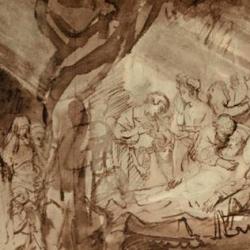In an older article on purity in ancient Israel, Jacob Neusner makes the trenchant observation that purity concerns arise primarily within sectarian disputes among Jews: “When gen- tiles profane the Temple, the language of cultic purity is not apt to enter into the description of the event, nor to predominate in the interpretation of its meaning. But when Jews accuse other Jews of doing the wrong thing in the Temple or in connection with the cult, they are apt to make their indictment, in part, through accusations of polluting the sanctuary or entirely misunderstanding the meaning of purity.”
One reason, he thinks, is that each of the main sects of Judaism (Essene, Church, Pharisees, rabbis) stake claims to be the temple or to carry on the holiness of the temple: “as with their approach to the Temple’s other symbols and meanings, the several sects all determined to define their relationship to the established Temple and to come to terms with it. They took over its rules, either by reinterpreting or by rejecting them. The three sects struggled with one another because they were so much alike, and because their claims in respect to the Temple brought them into direct conflict.”
Charges of impurity arise not only among Jewish sectarians, though, but also among Christians, in the Arian dispute for example. Purity is not just about policing the fences that protect the community from external dangers, but, perhaps even more, about policing the internal boundaries of a community.











